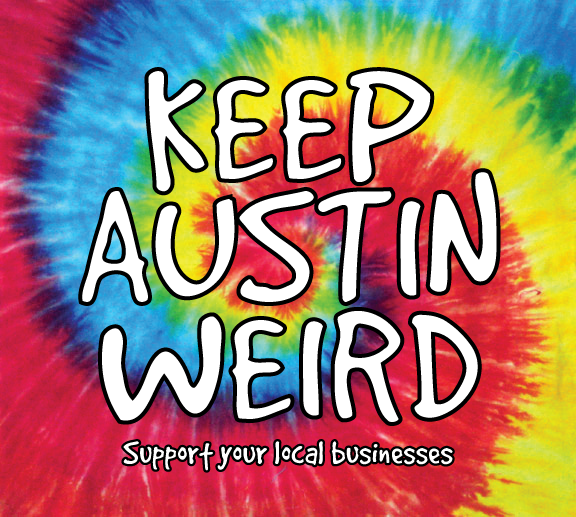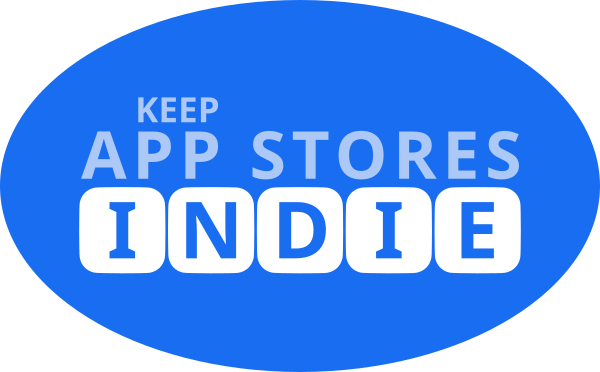Keep App Stores Indie
/Last week, Rene Ritchie wrote a great article, where he lamented the decline of indie apps in the App Store and passionately spoke out against its pop-ification.
In the article, Rene compared indie apps to the wooden toys of his childhood, which, for the most part, have lost out to cheaply made plastic toys.
App stores, like all markets with tons of cash, have seen that money flow from the small independent businesses to big name brand corporations. This market is now dominated by chain stores, putting many mom and pop stores out of business.
The next day, Daniel Jalkut wrote a response blog post, where he encouraged developers to continue making “wooden toys”. Much like wooden toys, Daniel argues there is still a market that values indie software.
Daniel’s post led me to tweet the following:
@danielpunkass @reneritchie Start something similar to Austin’s anti chain-store movement, “Keep Austin Weird”? - Keep the AppStore Indie
— yono mittlefehldt (@yonomitt) March 12, 2016
I promptly gave it no further thought.
Until the next day.
Keep Austin Weird
I used to live in Austin, Texas. Austin has a different feel to it than most places I have lived.

The unofficial slogan of the city has its origins in 2000. The city was growing at a rapid pace. The growth attracted more and more chain stores to move in, hoping to capitalize on the wealth. Some Austinites were worried the city was losing its unique feeling.
Keep Austin Weird was adopted to encourage people to support the small businesses of the city. It grew into a movement the helped define the personality of Austin itself.
There is even an annual Keep Austin Weird Festival going on 14 years now.
Keep App Stores Indie
Inspired by Keep Austin Weird, I started thinking more about what a Keep App Stores Indie[1] movement might look like. What’s the digital equivalent of bumper stickers and t-shirts? How do you inspire consumers to care about indie developers? How do you promote indie apps. How do you define an indie dev?
Promotion
Digital promotion could be as simple as adding wording to an app’s website proclaiming it as an indie app and displaying a Keep App Stores Indie banner.

This might sounds a little like the old geocities webring tactics, but I am sure it could be done more tastefully. Further customer education could be done within an info section in the actual apps.
Word of mouth would need to be a key component for spreading such a movement. The more often someone comes into contact with participating indie apps, the better the odds of convincing them to support indie devs.
Indie devs already do a great job of helping out other indie devs. Is there more we can do? I don’t know if I have an answer to that one yet.
Platform
It could be useful to develop an online database of indie developers and their apps through an opt-in mechanism.
The website could contain the same or similar information as the App Store for each indie app in its database. This info would need to be searchable, but that’s something we’ve always wanted anyway, right?
The site could be a non-profit and use affiliate links to pay for hosting. I actually have not done any calculations to see if this would be sustainable. Just making a guess.
indieappstore.org anyone?
For Android – this is not just an iOS problem, after all – there could theoretically be a separate app store just for indie apps. It’s nice in theory, but I imagine that would be a humongous undertaking. Although, I suppose an online database of indie devs and apps would also not be trivial.
Issues
There are, of course, issues that go along with this project. A big one revolving around how you define an indie dev and an indie app?
Just bear with me. I don’t think it’s as trivial as you think it is.
I’ll bet you could get most people to agree that VC funding disqualifies an app from being indie. Fine.
What about limiting team sizes? A team of one is surely an indie dev. What about a team of 3? 10? 50? Where do you draw the line.
Another indie metric could be revenue. Surely an app that grosses $50 million is no longer indie, but where is the cutoff?
Then there are transitional considerations. What if a dev or app meets all of the indie criteria and then grows their team or revenue passed the agreed upon cutoff points? Are they no longer indie? What if an indie sells his app to a large company? Is it no longer indie, even if it is the same product? What if an indie entered a branding deal with a big company? Are they still indie, but not the app?
If the movement were to catch on, how could you prevent big players from capitalizing on it just like they did with the App Store?
This is currently just a thought experiment. To bring a project like this to life would take buy-in from a lot of the indie dev community. Would it be worthwhile? I don’t know.
Would you participate? Let me know on Twitter. I’m @yonomitt. I’d be interested to hear your thoughts.
Have a nice day,
Yono
One note… I am not a designer. I created the example logo to have some pictures sprinkled throughout this blog post. If I visually offended any designers, my apologies.
